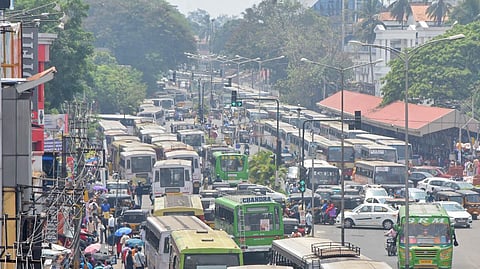The culture of strikes in Kerala must end
Strikes are a part of Kerala’s culture, and often don’t need a reason. If bandhs, hartals, protests and processions routinely unsettle normal life, people of the state have learnt to live with them without complaining. On Wednesday, a 60-year-old man with a heart condition died when the staff of the state-run bus operator KSRTC, protesting against the arrest of some colleagues, went on a flash strike, stopped services and blocked roads in Thiruvananthapuram, bringing the city to a halt for hours.
The man, waiting for a bus in the sweltering heat for a long time, died of exhaustion, and the delay in getting him medical attention due to the road blockade also played a role. The incident sparked outrage and the opposition took the government to task, but the fact is strikes like these have the blessings of, and are often sponsored by, political parties. The CPI, a member of the ruling LDF, has already come out in defence of the erring KSRTC staff.
Hardly a day goes by in Kerala without strikes or processions hampering daily life, and rarely is any action taken against those responsible. On February 16, the Popular Front of India took out a massive procession in Kochi, blocking traffic for hours. That the march was illegal, as the organisers hadn’t taken the necessary permissions, didn’t stop police from being mere onlookers when PFI members took over the roads and left thousands stranded. Among those stuck were patients in ambulances and children returning from school.
During the prolonged Sabarimala agitation last year, a cancer patient died due to the delay in getting medical attention and a protester was killed in stone-pelting. Such agitations also come with a huge financial cost, and the people are forced to grin and bear it. It’s time to put an end to this culture. The government must take action against groups and people disrupting lives and damaging properties in the name of protests. The right to protest is a fundamental one, but that doesn’t mean people have the right to block roads and hassle others.

